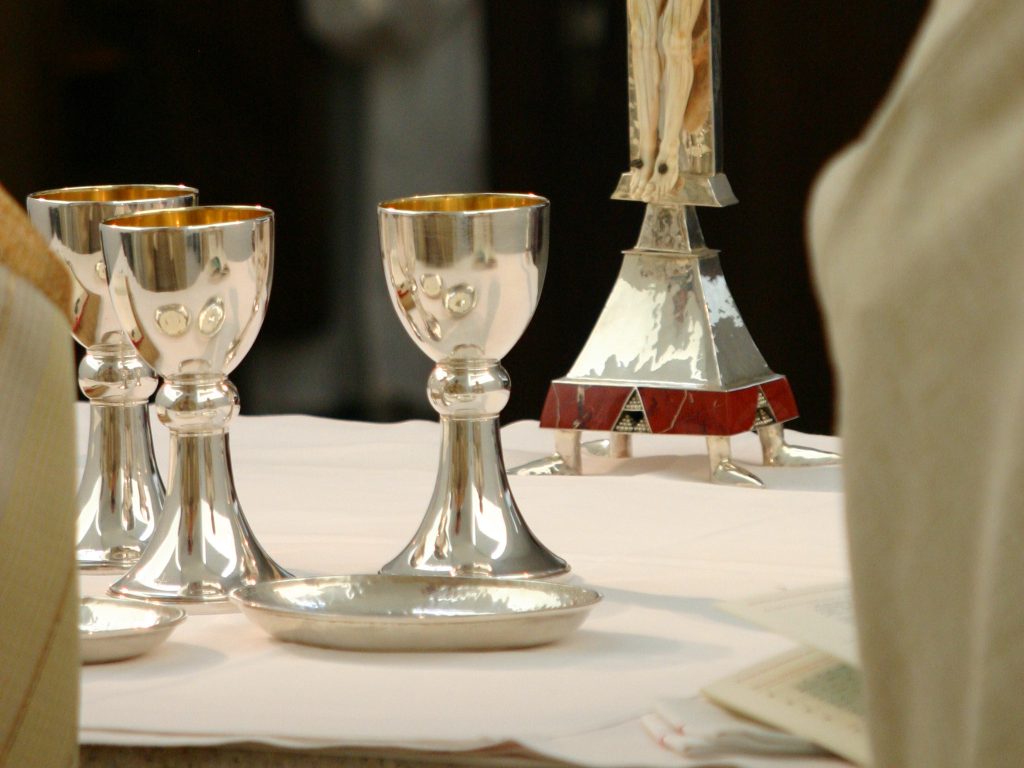Divine Office and the Eucharist

Saint Benedict dedicates many chapters of the Rule to the Divine Office – composed of hymns, sung psalms and Bible readings – which are brief during short services and longer at the night office. The monastic community celebrates in the name of the Church and gives God the praise due to Him. Each Office includes an intercessory prayer that asks God to dwell upon our world.
“Speaking to yourselves in psalms and hymns and spiritual songs, singing and making melody in your heart to the Lord”
(Letter to the Ephesians 5:19)
Saint Benedict described in meticulous detail how the office should unfold, yet also stating that adaptations were possible. We sing the Divine Office in Czech, occasionally – and especially on religious holidays – with a beautiful Gregorian chant, which lends our praises an air that is both contemporary and timeless, creating a link with the many monks that have preceded us.
“On hearing the signal for an hour of the divine office, the monk will immediately set aside what he has in hand and go with utmost speed, yet with gravity and without giving occasion for frivolity. Indeed, nothing is to be preferred to the Work of God.”
(Saint Benedict, Rule for Monks, chapter 43)
The
central focus of monastic life is celebration of the Eucharist. It
transforms us on a daily basis and leads us to eternal life.
Our
minor, limited existence joins the sacrifice of Christ, whose
fecundity is infinite. The Eucharist is at the heart of monks’
lives as it is through and in the Eucharist that our Saviour, Lord
Jesus chose to remain among us. Not only is he present, but he
proposes that we respond to his Covenant. Monks believe that the
Eucharist they celebrate daily is supernaturally propitious for the
glory of God and the salvation of all mankind.
“Whoever eats my flesh and drinks my blood has eternal life, and I will raise them up at the last day. For my flesh is meat indeed, and my blood is drink indeed. Whoever eats My flesh and drinks My blood remains in Me, and I in him”
(Gospel of John 6:54-56)